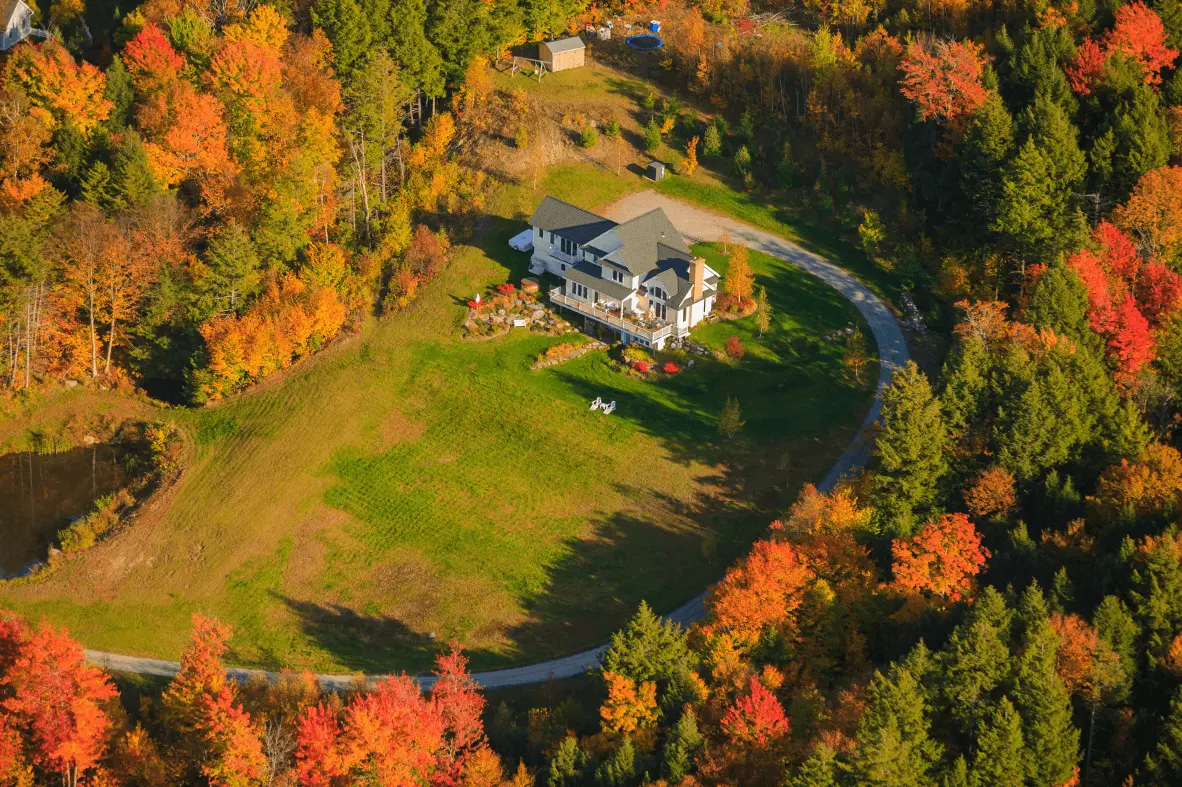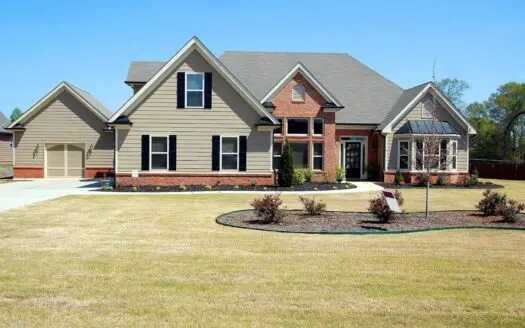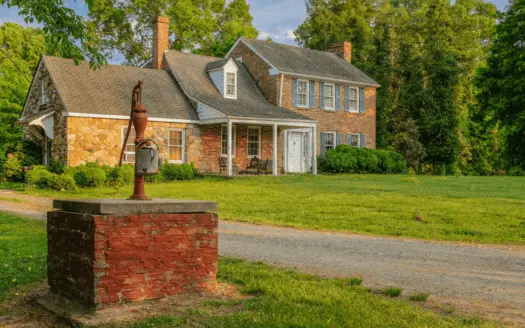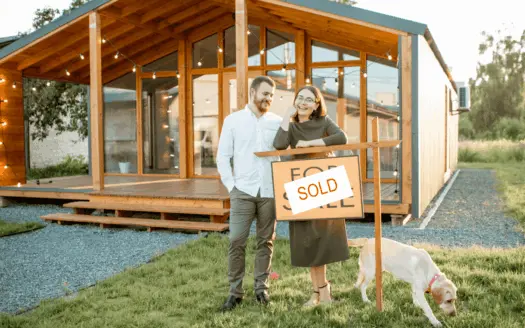10 Things You Should Know Before Buying a Rural Property | United Country Real Estate
Everything You Need to Know About Buying a Rural Property
Are you thinking about buying a rural property?
When most people think of moving to the country, they imagine wide open spaces, fresh air and peace and quiet.
And while that can certainly be true, there’s also a lot more to consider when making the switch from city living to a rural lifestyle. For starters, properties in rural areas are often much cheaper than their urban counterparts – but that doesn’t mean they’re always a bargain.
In fact, there are all sorts of hidden costs associated with owning a rural property that you might not be aware of until it’s too late.
From septic tanks and well water to unexpected repairs and maintenance fees, it’s important to do your research before signing on the dotted line.
Table of Contents:
- What to Consider When Buying a Rural Property
- Things to Know About Owning a Rural Property
- The Pros and Cons of Living in a Rural Area
- Tips for Moving to or From a Rural Community
- FAQs in Relation to Rural Property, Rural Property Questions
- What makes a property rural?
- Is rural property a good investment?
- What questions should I ask before buying land?
- What classifies a property as rural in Australia?
- Conclusion
What to Consider When Buying a Rural Property
There are a few things you should consider before making your purchase.
Here are a few rural property questions to help you make your decision:
- What is the property zoned for?
- What are the property taxes?
- What is the cost of living in the area?
- What is the climate like?
- What are the schools like?
- What is the job market like?
- What are medical facilities like?
- What is the crime rate like?
- What is the community like?
- What is the property value likely to do in the future?
These are just a few of the things you should consider before buying a rural property. Do your research and ask lots of questions to make sure you are making the best decision for you and your family.
10 Things to Know About Before Buying a Rural Property
Here are a few questions to ask yourself and things to keep in mind:
1. What is the reason for wanting to purchase a rural property?
Whether you’re looking for a weekend getaway, a place to retire, or simply want to escape the hustle and bustle of city life, it’s important to know your motivation for wanting to buy rural property.
This could be a change in lifestyle, safety concerns, or a long-term investment. You need to have a specific goal in mind.
2. What is your budget?
When it comes to rural properties, they can range in price depending on the size of the land, location, and any structures that may be on the property. It’s important to have a realistic budget in mind before beginning your search.
Moving house isn’t just stressful for your mental health, but your financial health as well.
3. What are the property taxes like in the area?
This is an important factor to consider, as property taxes can vary greatly from one area to the next. Consult your local community or your nearest IRS for guides of taxes in different states.
4. What is the climate like?
This is important to consider if you plan on living on the property full-time or if you’re looking to use it as a vacation home. There are a lot of people who have a hard time adjusting to new climates. If you’re not a fan of regular rain, reconsider moving to Seattle. Or if you find a little heat can be overbearing sunny states such Arizona or California might not be a fit for you.
5. What is wildlife like?
This is something you’ll want to consider if you’re planning on hunting or if you simply want to be aware of the animals that live in the area. The downside of living in the country is you’ll encounter wild animals that may make living in the area difficult. Coyotes, bears, and starlings will end up in your yard and you have to arm yourself with safety precautions.
Here are more ways to protect your rural home.
6. What are the neighbors like?
When you live in a rural area, your neighbors can become like family. It’s important to get to know them and make sure you’re compatible. You might need to brush on your social skills and be acquainted with them.
7. What is the nearest town or city?
Even if you’re looking for a rural property to get away from it all, it’s important to know what town or city is nearest in case of an emergency. Properties that are near schools, traffic or police stations are among the favorites of home buyers. You might want to find a grocery store or a diner that is easily accessible by car.
8. What is road access like?
This is important to consider if you plan on living on the property full-time or if you simply want to be able to get to it easily for weekend getaways.
9. What are the utilities like?
Make sure to find out what kind of utilities are available in the area and how much they typically cost.
10. What is home insurance like?
This is an important factor to consider, as home insurance rates can vary greatly depending on the location of the property. If you’re thinking about purchasing a rural property, these are just a few of the things you should keep in mind.
With a little research and planning, you can find the perfect property for you and your family.
Key Takeaway: There are a few things to consider before purchasing a rural property, such as budget, property taxes, climate, and wildlife.
The Pros and Cons of Living in a Rural Area
When you’re looking for a place to call home, there are a lot of factors to consider. One big question is whether you want to live in a rural area or not.
There are pros and cons to both, so it’s important to weigh your options and figure out what’s best for you. Rural areas have a lot to offer.
- One big perk is that you’ll have more space. If you’re looking for a little more peace and quiet, a rural area might be a good fit for you.
- You’ll also be able to enjoy the great outdoors more since you’ll be surrounded by nature. On the downside, living in a rural area can be isolating.
- If you’re someone who likes to be around people, you might find yourself feeling lonely. There are also fewer amenities in rural areas, so you might have to drive further to get to the grocery store or other places you need to go.
Ultimately, whether or not living in a rural area is right for you is a personal decision. If you’re looking for more space and a slower paced lifestyle, a rural area might be a good fit.
But if you prefer to be around people and have more amenities nearby, you might want to stick to a more urban area.
Key Takeaway: There are pros and cons to living in a rural area. You’ll have more space but fewer amenities.
Tips for Moving to a Rural Community
Moving to or from a rural community can be a big adjustment.
Here are some tips to help you make the transition:
1. Do Your Research.
If you’re moving to a rural area, find out as much as you can about the community beforehand. Talk to people who live there and get a feel for what life is like.
2. Be Prepared for a Slower Pace of Life.
In a rural community, things move at a different pace than in a city. Be prepared for that and don’t expect things to happen as quickly as they might in a larger community.
3. Be Flexible.
Things may not always go according to plan in a rural community. Be flexible and be prepared to go with the flow.
4. Be Patient.
Getting to know people in a rural community can take time. Don’t be discouraged if you don’t feel like you fit in right away.
Give it time and be patient.
5. Be Open-Minded.
Be open to new experiences and new people. You may be surprised at how much you like living in a rural community.
Key Takeaway: In a rural community, things move at a slower pace and it can take time to get to know people. Be patient and be open-minded.
FAQs
What makes a property rural?
There is no definitive answer to this question, as there is no strict definition for what constitutes a “rural” property. However, in general, rural properties are typically those that are located outside of urban areas and away from densely populated areas.
They may be located in more remote or rural areas, and often have larger lot sizes than properties in urban areas.
Is rural property a good investment?
It depends on what you are looking for in an investment. Rural property can be a good investment if you are looking for a long-term investment, or if you are looking for a property that will appreciate in value over time.
However, rural property can also be a risky investment, as there is often less demand for rural property and it can be more difficult to sell.
What questions should I ask before buying land?
- What is the zoning of the land?
- What are the property taxes?
- What are the restrictions on the land?
- What is the size of the land?
- What is the topography of the land?
- Is there water on the land? If so, what type of water and how is it accessed?
- Is there electricity on the land?
If so, how is it accessed?
- Are there any easements on the land?
Conclusion
When you’re thinking about buying a rural property, it’s important to do your homework first. There are a lot of things to consider – from the hidden costs to the pros and cons of living in a rural area.
But if you’re prepared for what’s ahead, it can be an incredibly rewarding experience.
Looking for a reliable and experienced real estate company to help you buy or sell your rural property? Look no further than United Country Real Estate.
Contact us today to get started and find the rural property of your dreams!




